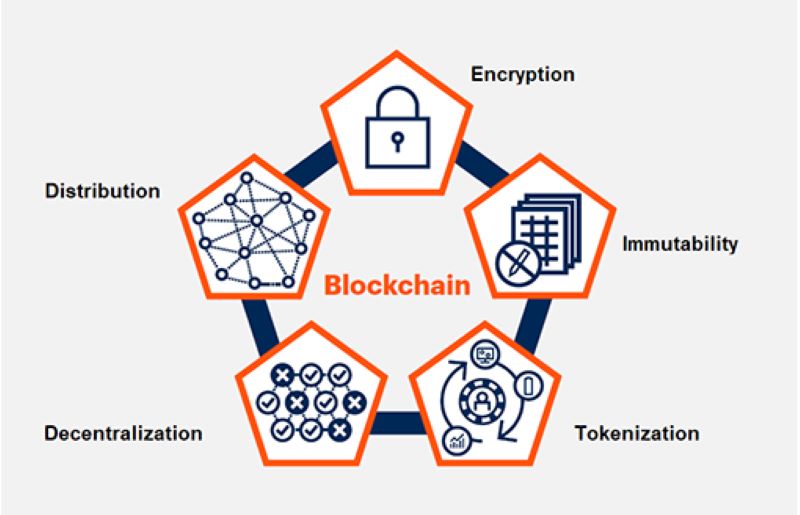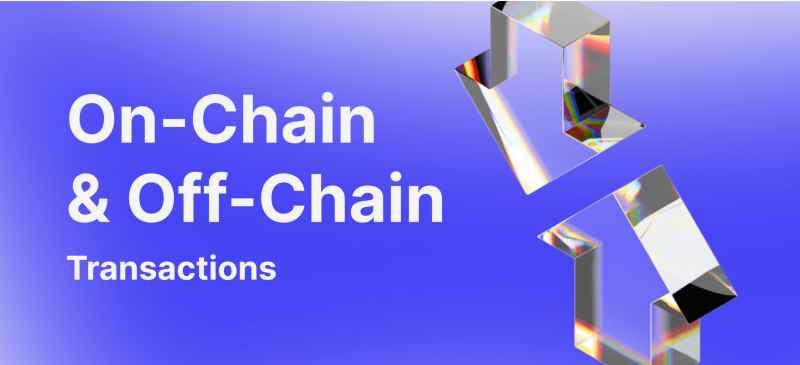Unlocking Cost Secrets
Diving into the world of crypto, you’ve heard whispers about pricing factors for blockchain code audits, but what does it cost, really? It’s not just about finding bugs; you’re securing your digital treasure. Let’s break down the cents and sense behind audit fees. From the size of your code to the smarts of your auditor, we’ll explore what puffs up the price and what keeps it grounded. Watch your wallet but don’t pinch pennies on security. Stay savvy and let’s unlock these cost secrets together.
Understanding the Spectrum of Blockchain Audit Costs
The Complexity of Project Size and Code
When you want to keep your crypto safe, you need a pro to check the code. The bigger the project, the more it might cost. More lines of code mean more time to look for sneaky errors or hacks. Think of it like a massive puzzle. The more pieces you have, the longer it takes to put it all together. If your project is big, get ready to pay more.
A pro will dig into every line to make sure it’s solid. But it’s not just size that matters. Some code is super tricky. It’s like some puzzles are not just big, but also really hard. The harder the code, the longer it takes to check. If your code is complex, the price goes up. We’re talking about things like smart contracts. They are key to Ethereum and such. They can be simple or crazy hard to get right.
Evaluating Smart Contract and Platform Specifics
Now, let’s chat about smart contracts. They are special rules on the blockchain that handle money or anything valuable. To audit them, you need to understand how they work. Each one is different. That means each check can cost a different amount.
Also, not all blockchains are the same. Some use special tech or have unique features. The kind you use can change how much you pay. For example, auditing something for Ethereum can differ from a new platform. It’s good to know this stuff because it can help you plan your budget.
Each blockchain has its own rules. Smart contracts on Ethereum are different from other places. Some are for finance things like loans or exchanges. Others are for games or art. The kind makes a difference in the cost too. If it’s for something really important, like handling a ton of money, the audit needs to be super detailed. This means more time and a higher cost.
If you’re making something new in the blockchain world, keep these things in mind. It’s not just about how big or fancy your project is. It’s also about what it does and how it works with the rules of the blockchain you choose. Remember, it’s all about safety. We don’t want anyone to lose their shirt because of some sneaky code problem.
The Impact of Auditor Expertise on Blockchain Security Audits
Analyzing Auditor Qualifications and Industry Reputation
When I look at audit prices, I see brains. Yes, brains! Auditors with top skills often ask for more cash. More skills mean a steeper price tag. Why? Well, think of a sharp knife. It cuts way better than a dull one. In audits, a sharp mind spots tiny cracks in code that a dull one might miss. Clients know this. So they don’t mind paying extra for auditors who can find those sneaky bugs hiding in the code. In fact, everyone wants that pro who says, “Gotcha!” to a hidden piece of bad code.
And there’s something else big – reputation. A good name spreads like wildfire. An auditor who’s zapped tons of bugs before will make more than someone new. It’s like picking a hero for your team. You want the one who’s crushed it in games before. So my advice? Look out for those champs with the golden reps to get top audit work.
The Role of Specialized Skills in Smart Contract Audits
Now, let’s chat about smart contracts. They’re like special puzzles. Some auditors look at them and see jumbles. Others see how pieces fit together. That’s the magic skill. But extra skills mean more dollars for the audit bill. And the smart contract world is wild. You’ve got smart contracts doing all sorts of cool things. So an auditor with extra smarts in that area will look at your contract and not just say, “Looks good!” He’ll dig in and really twist and tweak the code to test it all over.
If he’s got skills in Solidity or Vyper, that’s money. Literally. Because these languages? They’re the heart of Ethereum’s smart contracts. And in DeFi? Whoa, there’s even more variety. So the more fancy the auditor’s skills, the higher the tag. And we’re not talking just a little jump. If you want the best eyes on your Ethereum dapp or fancy new DeFi protocol, get those experts. Yes, it’ll cost. But think about it. That cost can save you loads later from a nasty bug that slips and messes up everything.
That’s why expertise is king in blockchain audits. And when you’ve got a big, juicy project with lots of moving parts, those brainy auditors with their fancy certificates and shiny trophies make all the difference. Sure, you might gulp at the price first. But remember, you’re paying for peace of mind. You’re buying that cozy feeling that your crypto treasure is safe. That’s worth every penny.
Determining Factors in Blockchain Audit Service Fees
Frequency and Depth of Audits
How often do you need blockchain audits? The more, the higher the price. Regular checks keep your system sound but raise your yearly costs. A deep dive can find more flaws than a quick look. But, it costs more.
On-chain vs. Off-chain Code Review Considerations
Where does your code live? On-chain checks are public and secure but tricky. Off-chain reviews might need more time and effort. Both affect your total price. Choose what’s best for you.
Each blockchain review comes with its own price tag. You might think, “Why’s the cost so different?” Well, many things shape what you pay. Size matters. Bigger projects need more eyes for longer. Complexity also hikes up the bill. Simpler is cheaper.
An expert’s touch can cost more. Yes, paying for know-how can sting. But think, mistakes can cost you more later. Reputations have value too. Firms with big names often charge more. They bring trust and tried skills.
Some questions are easy to miss. “Is Ethereum different to audit than Bitcoin?” Yes, they’re not the same. That’s because their code and setup vary. This matters when pinching pennies. Each job is unique. The company you choose should understand that.
An urgent request for a review? That will cost extra. “Emergency” means “right now,” and that’s never cheap. As you think about these things, remember the golden rule: You often get what you pay for. Investing in good security now can save you a bundle later.
Deciding what you need is key. The cost of blockchain security analysis changes. But knowing why helps you make smart choices. So, you’re not just throwing money away. Look for where you can cut costs without risk. That’s your smart move.
Now, here’s a tip: compare market rates for blockchain audits. Research can find you a deal. Still, be wary of prices that seem too good. They might skimp where it matters most. Check for post-audit support too. The help you get after can mean a lot.
Think long term. Audit frequency and cumulative costs can add up. Plan your audits for the journey, not just today. And those custom blockchain solution audit prices? They’re worth it if they fit like a glove.
Always weigh your options. Automated versus manual audit cost comparison is a hot topic. Bots are fast but sometimes miss the human touch. Balance is the goal here.
Remember, your code guard should know their stuff. A keen eye for details does wonders. Like a silent watchdog, a good audit keeps threats away. Now that you get the pricing dance, you’re set to play your part smart. Choose well, and keep your blockchain safe and sound.
Market Dynamics and External Influences on Audit Pricing
The Effect of Regulatory Compliance on Audit Expenses
What factors make audit costs go up? One big part is rules. When laws get strict, audits must dig deeper. This means more work, so costs rise. Think of rules as road signs for audits. They guide how much checking and what kind. For example, if a blockchain project must follow finance laws, auditors have to look at extra stuff. This takes time and skill, so companies charge more.
Now, why does this matter to you? If your blockchain follows more rules, set aside more cash. It’s like when you pick a bigger meal; you know you’ll pay more. And don’t forget, some places have tougher laws than others. If your blockchain works there, the audits get pricier.
But wait, there’s good news too. Get your blockchain up to code and stay out of hot water. It saves you from fines and keeps your users safe. That’s a solid win-win.
Emergency Audits and Time-sensitive Pricing Adjustments
Now, what about when you’re in a rush? Let’s say you wake up to bad news. Your code’s got a hole, and hackers are peeking through. You need an audit, fast. This is what we call an emergency audit. And just like rushing a delivery, it costs extra. When you can’t wait, you pay for speed.
It’s like needing a plumber on a holiday. You know it’ll cost more, but you’ve got to fix the leak. An emergency blockchain audit can zap problems before they blow up. But that quick fix means a higher bill. Remember, auditors may drop other work to help you. So they’ll charge for the quick turnaround.
Auditors keep an eye on the clock too. There’s regular speed, and there’s “I needed this yesterday” speed. The faster you need it, the more it ticks the cost up. Planning ahead can help keep prices down. But if disaster strikes, know that speed wins, even if it means paying more.
Keep these two things in mind. Rules shape the costs of keeping your blockchain safe. And sometimes, when trouble hits, only a fast audit will do. Both can change how much you pay. It helps to be ready and know the drill.
In this post, we dove deep into what shapes the cost of blockchain audits. We looked at how project size and code complexity can change the price. We learned why smart contract specifics matter. We found out how an auditor’s skills and reputation play crucial roles in security checks.
Good audit services don’t come cheap. We saw how often you check your system and how deep you dig can up the cost. We figured out that looking at the code both on-chain and off leaves no stone unturned. We also touched on how rules by the government can make audits cost more. And we can’t forget how prices can spike if an audit needs fast action.
To wrap it up, getting the right audit for your blockchain project means thinking about all these things. The aim is to make sure you pay for the expertise and detail you really need. Nothing more, nothing less. Stay smart and pick the service that fits both your budget and your project’s safety.
Q&A :
What determines the cost of a blockchain code audit?
The price of a blockchain code audit can depend on various factors, including the complexity and size of the smart contract code, the reputation and expertise of the auditing firm, the urgency of the assignment, and the depth of the audit required. More complex and larger codebases tend to require more time to thoroughly analyze, which can increase the audit cost.
How can the complexity of smart contracts affect auditing prices?
Complex smart contracts with numerous functions and interactions with external contracts are typically more expensive to audit than simple token contracts. The intricacy of the code requires more thorough examination by auditors to ensure all potential security issues are identified and addressed.
Does the experience level of auditors impact the cost of a blockchain audit?
Yes, experienced auditors or reputable firms with a proven track record in identifying bugs and security vulnerabilities usually charge more for their services. This premium is often attributed to their expertise and the high demand for skilled professionals in the field of blockchain security.
Are there any additional costs associated with blockchain code audits?
Additional costs can arise if the code requires multiple rounds of audits, especially after the initial issues have been fixed and need to be re-verified. There may also be costs for project management, especially in cases where coordination between multiple stakeholders is necessary.
What role does audit urgency play in the pricing of blockchain code audits?
When a code audit is required urgently, perhaps due to an impending project launch or discovered vulnerability, auditors may charge a premium for prioritizing the project over their existing workloads. A faster turnaround often requires additional resources to meet the tight deadlines.




RELATED POSTS
Interoperable Blockchains: Unpacking Hidden Security Risks
Understanding the security risks in...
Phishing Attacks in Blockchain: How to Shield Your Digital Assets
Protect your blockchain assets from...
Cryptocurrency Analysis Essentials: Unlocking Profitable Market Insights
Explore the Crypto Market Landscape:...
Unraveling the Mystery: What is a Block in Blockchain?
What is a block in...
Blockchain Smart Contracts: Unveiling 7 Game-Changing Applications
Unlock Efficiency: Explore Smart Contracts'...
Cryptocurrency Payments: Unleash the Future of Seamless Transactions
Integrate cryptocurrency payments securely. Ensure...
NebulaStride Airdrop – Tips to Maximize Income
To maximize your income from...
Decentralized Systems Unveiled: Harnessing the Power of Collective Innovation
Unlocking the Benefits of Decentralized...
Blockchain Backlash: Uncovering the Environmental Footprint
The Environmental Impact of Blockchain:...
Blockchain Speed Unveiled: Are Transactions Lightning Quick?
How fast are blockchain transactions?...
How is blockchain used in specific industries?
How is blockchain used in...
DuckChain Airdrop: Great opportunity to get free Tokens
In the context of rapid...
Tellor (TRB Crypto): A secure oracle solution for DeFi
In the blockchain world, accessing...
Acki Nacki Airdrop: A detailed guide on how to participate
In the rapidly evolving world...
The dApp Meaning – The Digital Revolution
Curious about “The dApp Meaning“?...
Security Challenges in DeFi: Navigating the Uncharted Waters Safely
Protect Your DeFi Applications from...